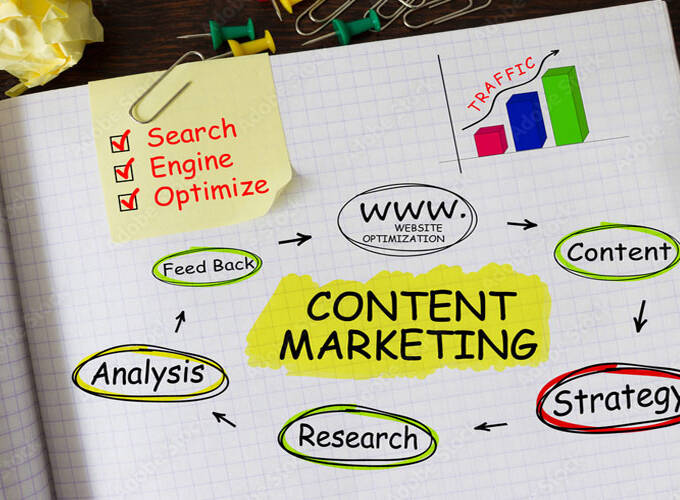In today’s fast-paced digital world, effective marketing is about connecting with your audience at the right time and place. This means understanding the digital landscape and leveraging its power to your advantage. Digital marketing, when done right, can propel a business to new heights. It’s more than just being an online presence; it’s about being present, relevant, and impactful. We aim to provide you with some practical tips to enhance your digital marketing campaigns, ensuring that they resonate with your target audience and help deliver tangible results.
How To Optimize Digital Marketing Campaign
1. Understanding Your Target Audience
The first step in optimizing any digital marketing campaign is to know who you are talking to. Understanding your target audience is key. It’s about knowing their needs, preferences, and online behaviors. Gather data through surveys, social media interactions, and website analytics. This information allows you to tailor your content, design, and strategy to meet the specific needs and interests of your audience.
2. Leveraging High-Quality Visuals
Humans are visual creatures, and in the digital space, this is more apparent than ever. High-quality visuals can make your campaign stand out. Incorporating striking images, graphics, and videos can significantly enhance engagement. This is where stock photos come in handy. They are a cost-effective way to elevate your visual content, but do ensure that these visuals align with your brand identity and message.
3. Optimizing for Mobile Users
With the increasing use of smartphones, optimizing your digital marketing for mobile users is non-negotiable. Your website, emails, and all digital content must be mobile-friendly. This means fast loading times, responsive design, and content that’s easy to navigate on a smaller screen. Mobile optimization not only improves user experience but also contributes to your SEO efforts. Additionally, a mobile-optimized campaign is more likely to reach a wider, more engaged audience.
4. Utilizing SEO Strategies
Search Engine Optimization (SEO) is the backbone of effective digital marketing. It’s all about improving your online visibility. Use relevant keywords, create quality content, and optimize your website’s structure and loading speed. Stay updated on the latest SEO trends and algorithms to ensure your content ranks well in search engine results.
5. Engaging Through Social Media
Social media is a powerful tool in your digital marketing arsenal – it helps foster engagement and build relationships. Choose platforms that align with your brand and where your audience is most active. Use a mix of posts, including images, videos, and live streams, to keep your audience engaged. Interact with your followers, respond to comments, and be part of the conversation. Authenticity on social media can build a loyal community around your brand.
6. Creating Compelling Content
Good content can really change the game for your business. Whether it’s a blog post, video, or infographic, your content needs to be compelling and valuable to your audience. It should inform, entertain, or solve a problem. High-quality content can establish your brand as an authority in your field, building trust with your audience. Keep your content fresh and relevant, and experiment with different formats to see what garners the best results with your audience.
7. Implementing Email Marketing
Email marketing remains a powerful tool in digital marketing due to its direct and personal approach. To optimize your email campaigns, focus on personalized content. Segment your email lists to ensure that the right messages reach the right audience. Craft engaging subject lines and make sure your emails are visually appealing and mobile-friendly. A well-executed email campaign can significantly boost engagement and conversions.
8. Utilizing Data Analytics
Data is the fuel that drives successful digital marketing campaigns. Utilizing analytics helps you understand user behavior, preferences, and patterns. Tools like Google Analytics provide valuable insights into website traffic, engagement rates, and conversion metrics. Use this data to make informed decisions about your marketing strategy. Analyzing trends and performance metrics allows you to fine-tune your campaigns for better results. In digital marketing, data-driven decisions, enhanced by the visualization of data through infographics, lead to more efficient and effective campaigns.
9. Exploring Paid Advertising
Paid advertising can amplify your digital marketing efforts by giving you access to a much wider audience. There are platforms like Google Ads and other social media advertising options that offer targeted ways to reach specific demographics. When exploring paid advertising, focus on defining your goals and target audience. Allocate a budget that aligns with your objectives and track the performance of your ads. However, paid advertising should complement your organic marketing efforts, not replace them.
10. Encouraging Customer Feedback
Customer feedback is a valuable resource, as it provides insights into what your audience thinks about your brand, products, or services. Encourage feedback through surveys, social media polls, and direct communication channels. Listen to what your customers are saying and respond constructively. Use this feedback to improve your products and marketing strategies. Customer feedback not only helps in refining your digital marketing approach but also builds trust and loyalty among your audience.
11. Keeping Up with Trends
In order to keep up with the constantly evolving digital marketing landscape, it’s important to stay updated on the latest trends and technologies. Follow industry blogs, attend webinars, and participate in relevant forums. Experiment with new platforms and tools as they emerge. Be aware of changes in consumer behavior and adapt your strategies accordingly. Staying informed and flexible allows you to leverage new opportunities and maintain a competitive edge in the digital space.
12. Measuring and Adjusting Campaigns
Continuous measurement and adjustment are key to the success of digital marketing campaigns. Set clear, measurable goals and use analytics to track your progress. Regularly review your campaign performance and be ready to make adjustments. This could mean tweaking your content, revising your SEO strategies, or reallocating your advertising budget. The ability to adapt and respond to performance metrics can help get the maximum impact out of your digital marketing efforts.
Optimizing your digital marketing campaign is an ongoing process that requires attention to detail, adaptability, and a deep understanding of your audience. The digital landscape is dynamic, so it’s important to stay informed and flexible, changing gears and re-strategizing as needed. By integrating these tips into your digital marketing plans, you can create more impactful and successful marketing campaigns that resonate with your audience and achieve your business goals.













